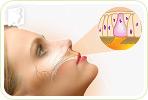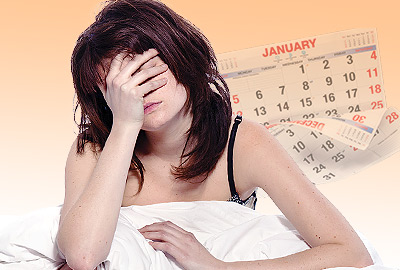
Night sweats affect nearly 80% of women going through menopause and usually impact women for between six months and two years. However, some women can experience night sweats for up to 11 years. Menopause is also not the only cause of night sweats. Other causes, such as hormonal changes, underlying medical conditions, and medications can be responsible.
Night sweats are sudden feelings of intense heat that can wake a woman up in the middle of the night, causing her to feel clammy and drenched in sweat. Night sweats are usually concentrated in the head, neck, and chest, and can be accompanied by rapid heartbeats and flushing.
What Causes Night Sweats?
Night sweats can have a range of causes, including:
Menopause
The hormones estrogen and progesterone play a wide range of roles in the human body. One of the roles of estrogen is influencing the body's thermoregulation and core temperature regulation. As estrogen levels decrease, the body may overcompensate for changes in body temperature, leading to hot flashes and night sweats.
Menstruation

A woman experiences fluctuations in her hormone levels as she goes through her monthly cycle. A woman may be at a higher risk for night sweats when her monthly estrogen levels are at their lowest.
Antipyretics
Medications that alter body's temperature in order to lower fevers can cause night sweats. This includes medications such as aspirin, ibuprofen, and naproxen. Infections can also cause night sweats.
Pregnancy

Recent research shows that pregnant women do regularly experience night sweats. Women also experience night sweats in the months after giving birth. This is probably do to the hormonal changes that happen as a part of pregnancy.
Breast and prostate cancer treatment
Treatments like chemotherapy may induce night sweats. Night sweats may also indicate that one has the beginning stages of cancer, often lymphoma.
Antidepressants
Antidepressants increase sweating and can cause night sweats as a side effect. It is not well understood why antidepressants tend to do this, but research is being done.
How Can Night Sweats Be Treated?
One of the most effective ways menopausal women can treat night sweats is by taking hormone replacement therapy. This increased the amount of estrogen in the body, which reduces night sweats and other menopausal symptoms. However, hormone replacement therapy can have serious side effects, so it is important to talk to your doctor about them along with your medical history.
If you think your night sweats are being caused by your medication or by an underlying medical condition, you should see a physician in order to get a proper diagnosis and treatment.
Many women rely on lifestyle changes to help reduce the severity and frequency of their night sweats. Lifestyle tips to manage night sweats include:

- Cutting back on caffeine, alcohol, and spicy food, especially before bed
- Wearing light and breathable pajamas made of natural fibers such as cotton
- Sleeping near an open window or fan
- Lowering the temperature of the room or using air conditioning
- Keeping a glass of cool water by your nightstand to drink if a night sweat comes on
More about Night Sweats
Night sweats can be frustrating and lead to other medical problems, such as fatigue and exhaustion. If night sweats are lowering the quality of your life, it is important to talk to a doctor about treatment. Click on the links below to read more about night sweat treatments.
Sources
- Ferrari, N. (2015). Menopause-related hot flashes and night sweats can last for years. Retrieved November 10, 2015, from http://www.health.harvard.edu/blog/menopause-related-hot-flashes-night-sweats-can-last-years-201502237745
- National Health Service UK. (2015). Hot flushes: how to cope. Retrieved November 10, 2015, from http://www.nhs.uk/Livewell/menopause/Pages/hot-flushes.aspx



